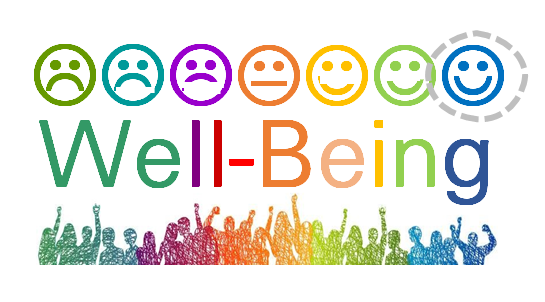ShareToWell - Validation of different language versions of the Well-being Numerical Rating Scales
Sharing a common tool to assess well-being at the University
The present project aims to provide a reliable and valid tool to assess well-being across the different EUniWell universities. This tool might help in sharing study and research programmes, generate synergies, and improve the well-being of individuals.
Within a multidimensional approach to well-being (including physical, psychological, spiritual, relational, and general well-being), we propose the Well-being Numerical Rating Scales (WB-NRSs), a previously tested tool with sound psychometric properties (Bonacchi et al., 2021). The specific goal of the present project is the linguistic validation of the English (UK), French, German, Hungarian, Swedish, Spanish, and Dutch version of the WB-NRSs. All EUniWell partners participate in the project.

Purpose and Significance
The WB-NRSs is intended to facilitate a sharing of research programmes across EUniWell universities in their development of actions to promote well-being. The tool combines the added value offered by a brief scale (e.g. rapid assessment, minimal respondents’ fatigue, boredom, and loss of interest, suitability for large, multivariate surveys and in pre- post administration) with good psychometric properties and the ability to detect changes in well-being produced by specific intervention programmes. In line with the SDG 3 - Good Health and Well-Being, EUniWell develops and implements intervention programmes to promote well-being in a comprehensive welfare-based framework. Thus, this tool is of fundamental importance to analyse and measure the multi-level impact of each action.
Implementation Method and Timeline
For the linguistic adaptation of the WB-NRSs, the following phases of the study are foreseen:
- 1 October 2022: Ethical application - Preparation and submission of the application form for the Institutional Ethics Committee of each University.
- 15 October 2022: Scale translation - Back-translation of the WB-NRSs.
- 1 November 2022: Online questionnaire - Development of an online questionnaire including measures for validity testing.
- December 2022 (depending on ethical approval): Data collection - Recruitment and data collection will take place following the ethical procedures of each university. The sample will include members of each participating university.
- February - March 2023 (depending on data collection timing): Statistical analysis - Testing of the psychometric properties of each language version and the invariance of the Italian, English (UK), French, German, Hungarian, Swedish, Spanish, and Dutch WB-NRSs.
- June-July 2023: Paper preparation - Writing the research paper on the project results.
Expected Outcomes
- A linguistically adapted version of the WB-NRSs for each EUniWell partner.
- A paper in a peer-reviewed open-source journal to disseminate the results.
- A concluding seminar to facilitate exchange, interaction, and relationship building among EUniWell universities.
Contacts:
- Francesca Chiesi, University of Florence, francesca.chiesi[@]unifi.it
- Emeline Chauchard, Nantes Université, Emeline.Chauchard[@]univ-nantes.fr
- Anna Júlia Éliás, Semmelweis University, elias.anna.julia[@]gmail.com
- Lali Lindell, Linnaeus University, lali.lindell[@]lnu.se
- Salvador Ruiz de Maya, University of Murcia, salvruiz[@]um.es
- Inge van der Weijden, Leiden University, i.c.m.van.der.weijden[@]cwts.leidenuniv.nl
- Rainer Weber, University of Cologne, rainer.weber[@]uni-koeln.de
- Rose Whyman, University of Birmingham, R.Whyman[@]bham.ac.uk
